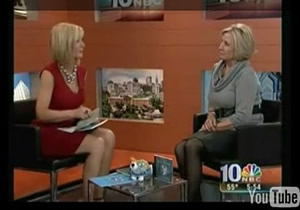- (0)
- 18
Oct -
Author : Claudia Category : Divorce Coach, General
Tags :
 Often, my clients have questions or issues regarding forgery as they go through the divorce process. I am going to do several posts on this subject and I have asked Cina L. Wong to answer a few questions that may be helpful to you.
Often, my clients have questions or issues regarding forgery as they go through the divorce process. I am going to do several posts on this subject and I have asked Cina L. Wong to answer a few questions that may be helpful to you.
Cina has qualified in state and federal courts and is a board certified forensic handwriting expert and document examiner who uses accepted scientific techniques in order to determine the authenticity of documents. If you have specific questions, you can connect with her through her web site Cina L. Wong & Associates, LTD.
Q. How easy is it to forge someone’s signature?
A. Simple enough if you are familiar with the person’s signature or if you have access to copies of their signature. There are many ways someone can forge your signature:
- Trace it from another document.
- Cut and paste an authentic signature from one document to another and then create a photocopy that can be used as the final document.
- Simulate a forgery which is when someone has knowledge of how you sign your signature so they can sign it from memory.
- Freehand forgery is the kind that is not even close to the real signature. It is actually a scribble that can serve as enough to get the document passed into the target venue such as a bank or courthouse.
- The type of forgery that has become more common is created using computer manipulated documents where an authentic signature has been scanned and placed onto a false document.
Q. How common a practice is forgery with married couples?
A. It is very common that husbands and wives forge each others’ signatures. Many times husbands and wives will sign for each other on documents and checks.
Q. What should be looked for if a signature is being questioned? (Not a photo copy)
A. Often the signatures are shaky, appear to be slowly written or don’t resemble the authentic signature.
Q. What kinds of forgeries do you see occurring with divorcing couples?
A. The documents most prevalent in my work are: Prenuptial agreements, settlement agreements, loan documents, credit card applications, quit claim deeds and reverse mortgage documents.
As those of you who are regulars here know, I often say not to assume anything about anyone. The same pertains to the possibility that forgery could play a role. Please keep your eyes open.
Photo: Jack Spades

